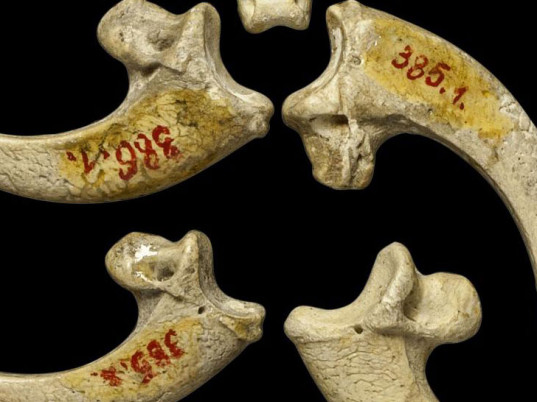1. Nepal earthquake
Recovery is chaotic, with no direction or authority says ABC journalist Siobhan Heanue. She said law and order and the general morale in Kathmandu was stable purely because of the compassion and attitude of the Nepalese people. Continue reading Saturday salon 2/5
Category Archives: Sundries
Posts on sundry matters of life the universe and everything: Culture, Environment, Life, Politics & Government, Science, Social Science and Society, Technology etc.
Nurses highest in esteem, daylight second
Nurses again rate, for the 21st year in a row, the highest in esteem amongst the professions. Fully 92% of Australians over the age of 14 rated them either high or very high when asked the following question in the Roy Morgan Image of Professions Survey 2015:
“As I say different occupations, could you please say – from what you know or have heard – which rating best describes how you, yourself, would rate or score people in various occupations for honesty and ethical standards (Very High, High, Average, Low, Very Low)?”
A sorry tale

Like others, I have been appalled by the barbaric execution state murder of Andrew Chan and Myuran Sukumaran together with six others by Indonesia. Our northern neighbour defends the killings as part of their ‘war’ on drugs. Continue reading A sorry tale
Quick blog admin note
Yes, the look of the site has changed yet again – sorry about that. WordPress is rolling out security updates every few days at the moment after a core vulnerability was discovered, and the updates break theme templates that try and be too fancy with non-core features.
So I’ve reverted to one of WordPress’ own standard themes, Twenty-Fifteen, in the hope that as further updates roll out they are less likely to break anything on this template.
Seeking answers on GM food
It began as a comment about Vandana Shiva on Saturday salon 28/3. It continued on the thread for Maharishi Mahesh Yogi – cultist, guru or con-artist?
The topic of genetically modified organisms (GMOs) is very broad, but where we left it the focus had been on the safety of GM foods.
I’d expressed a need for someone knowledgeable who was both engaged and detached to explain the topic. Frankly I get concerned when people, however well-informed, seek to shove the truth down my throat. Reliable information from someone who is not trying to convince me one way or the other, is what I need. Continue reading Seeking answers on GM food
Comments facility broken fixed

Unfortunately a WordPress update appears to have broken our comments facility. The “Submit” button has gone missing.
Unfortunately too our technical guru is on holidays with limited internet access, so I’m not sure when it’s going to be fixed. So I can only apologise and hope for better days. If anyone has any bright ideas, please let me know at climateplus@bigpond.com
I was going to do a post on GM foods, but I’ll leave that until the comments facility is fixed.
Saturday salon 25/4 (Anzac Day)

An open thread where, at your leisure, you can discuss anything you like, well, within reason and the Comments Policy. Include here news and views, plus any notable personal experiences from the week and the weekend. Continue reading Saturday salon 25/4 (Anzac Day)
We Need a Conversation On Government Revenue
At the moment, the federal, state and many local governments are doing a poor job because they are suffering from a chronic shortage of revenue. It shows up as things like long waiting times for hospital treatment, endless arguments about the amount of money the states are getting from the commonwealth and Hockey’s ridiculous and grossly unfair attempt in 2014 to solve our alleged financial problems by really screwing those at the bottom. Continue reading We Need a Conversation On Government Revenue
Dark energy: it all ends with a bang, not a whimper
We know that what we think of as ‘stuff’ in the universe is only a small part of it, right? The standard spiel is that ordinary stuff is 5% of the everything in the universe, dark matter about 25% and the rest – about 70% – is something called dark energy. Thereabouts. That’s on a “mass–energy equivalence basis” whatever that is.
Stuff, at least we can see it, although it goes very weird at the micro quantum physics level, where particles can be in two places at once, or in two different states at once, but if two particles are bonded, then change one and the other changes automatically and instantaneously even though kilometres apart in what Einstein called “spooky action at a distance”. Continue reading Dark energy: it all ends with a bang, not a whimper
Saturday salon 18/4

An open thread where, at your leisure, you can discuss anything you like, well, within reason and the Comments Policy. Include here news and views, plus any notable personal experiences from the week and the weekend.
For climate topics please use the most recent Climate clippings.
The gentleman in the image is Voltaire, who for a time graced the court of Frederick II of Prussia, known as Frederick the Great. King Fred loved to talk about the universe and everything at the end of a day’s work. He also used the salons of Berlin to get feedback in the development of public policy.
Fred would only talk in French; he regarded German as barbaric. Here we’ll use English.
The thread will be a stoush-free zone. The Comments Policy says:
The aim [of this site] is to provide a venue for people to contribute and to engage in a civil and respectful manner.
Here are a few bits and pieces that came to my attention last week.
1. Hilary Clinton runs for president
As expected Hilary Clinton has thrown her hat into the ring to become the Democrat candidate for the US presidency. So far it looks like her against the Republicans, perhaps about 20 of them. Mashable Australia takes a look at alternative Democrat candidates.
It seems that Senator Elizabeth Warren is the only one that would cause real fear to the Clinton campaign, and she has said about 4,398 times she’s not running.
2. Neanderthals made jewellery 130,000 years ago

A team of American and Croatian scientists have uncovered evidence that European Neanderthals were manipulating raptor talons to make jewelry at least 130,000 years ago, or about 80,000 years before the first Homo sapiens even stepped foot on the continent.
In the popular mind Neanderthals are thought of as bumbling simpletons, but we should remember that their brains were bigger than ours.
The article also points out that catching three of four eagles to make the jewellery was no mean feat.
3. CEO radically redistributes staff pay after reading wellbeing research
Dan Price, CEO of Gravity Payments in Seattle, decided to pay everyone $US70,000 after reading wellbeing research. He did this by reducing his own salary from $1 million to $70,000 and redistributing some of the company’s profits. He gave two reasons.
Firstly the research shows that increased wellbeing tapers rapidly after reaching $75,000. Secondly, happy staff are more productive.
A very rational decision!
4. Not so good news
There’s been plenty to be sad and sorry about on the intertubes lately. The stories of bestial treatment coming out of the Neerkol Orphanage in Rockhampton are beyond belief. It wasn’t just the priests and nuns who did the abusing. A Queensland Government official covered up the abuse. The former bishop allowed a priest to stay on at a parish even though he knew he was a paedophile, gave the priest a character reference and described reports of abuse at Neerkol as “scurrilous”.
On the box we were told that 31 women had died from domestic violence so far this year, shaping as worse than the 84 deaths recorded last year.
COAG laboured and came up with some measures which don’t cost money. It’s all well and good but probably won’t make much difference.
The biggest killer apart from probably tobacco has been suicide:
The National Mental Health Commission’s findings show more people die by their own hand than are killed in road accidents or by skin cancer. And it notes while Australia’s road toll has more than halved in 40 years, there has been little change in the suicide rate, which was double the road toll in 2012.
Health Minister Sussan Ley has sent the Commission’s report off to a reference group. She has “confirmed she won’t accept a key recommendation to channel $1 billion of hospital funding to community health programs instead.”
Truth be known we probably need additional funding to crank up community programs while then winding down hospital funding as the need diminishes.
5. Centre for Policy Development loses some sheen
The Centre for Policy Development is supposed to be a left wing think tank. Now it has supported a broadening of the GST base including a GST on fresh food. Mark Bahnisch, Eva Cox and John Quiggin have resigned as Fellows as a result. Here’s Quiggin’s statement.
Good on them!
Parking Spaces to Protected Bike Lanes
There are lots of good health, environmental and economic reasons for using bikes as replacement for other forms of transport and recreation. However, on average, your chances of being killed or injured are much higher when riding a bike than travelling by car. This post looks at some of the advantages and disadvantages of riding a bike instead of travelling by car. Continue reading Parking Spaces to Protected Bike Lanes
Trading away our rights and freedoms
John Quiggin has written about the Trans-Pacific Partnership (TPP) trade talks (article here, plus commentary at his blog).
This is meant to be a link post, but knowing how lazy people are with links I’ll highlight a few points here with a few comments of my own.
So far the negotiations involve twelve countries: Australia, Brunei, Canada, Chile, Japan, Malaysia, Mexico, New Zealand, Peru, Singapore, the United States, and Vietnam. Potential members include India and Indonesia. China, not so far but perhaps eventually.
Quiggin says that apart from agricultural products tariffs, quotas and other restrictions on trade have largely disappeared in our region. The TPP represents the emergence of “new generation” agreements. At the core of these agreements lie investor-state relations where a transnational corporation can sue a government for damaging its commercial interests by passing laws the detract from the corporations profits. Investor-state disputes are settled by a trade panel, usually three lawyers. Their rulings stand and are not appeallable in any court of law. Concerns include the environment, human rights protection, public welfare regulation, and health effects. Any law found u in the dispute ruling to inhibit a corporation’s profits is simply set aside.
For an overview, see AFTINET’s pamphlet and links at the end. For example, under the North American Free Trade Agreement (NAFTA):
Currently, the US Lone Pine energy company is using ISDS [Investor-State Dispute Settlement] provisions in NAFTA to sue the provincial government of Quebec for $250 million because it suspended shale gas mining pending an environmental study in response to community concerns.
Quiggin didn’t mention this, but the precautionary principle doesn’t apply. Under NAFTA a product must be proven to cause harm before it can be restricted. Any law based on the precautionary principle could be set aside in a dispute.
It’s beyond the imagination to think that the Americans would agree to labelling GM foods in the TPP.
The new generation agreements also have intellectual property components, which enhance the rights of corporations beyond what would be commonly thought reasonable.
Investor-state relations and intellectual property are being used already by Philip Morris and Big Tobacco in an attempt set aside Australian tobacco labelling laws. Philip Morris, for example, has incorporated in Hong Kong to bring a case under investor-state provisions we signed up to way back in 1993. If successful under trade dispute provisions a 6-1 High Court decision supporting the labelling regulations would be set aside.
Politically there has been strong bi-partisanship in Australia under the banner “free trade is good” since Latham and Conroy went to water over the US Free Trade Agreement in 2004. Hence recent agreements have been seen an an unmitigated good. Quiggin points out that one way of concluding agreements quickly, as Robb has done, is to concede the other party’s demands.
In the case of the agreement with Japan, for example, Australia secured some modest concessions regarding tariffs on beef, which will be reduced from 38.5 per cent to 19 per cent over a period of fifteen years. In return, our government accepted the total exclusion of rice from the deal, and the maintenance of most restrictions on dairy products.
The Korean agreement, KAFTA, was arguably even worse. Reversing our previous position, the government agreed to the inclusion of investor–state dispute provisions. This was apparently done not in response to Korean demands but because US negotiators were pushing the provision in the parallel negotiations for the TPP.
Negotiations are going on in secret, but sections revealed through Wikileaks give cause for alarm. In the end:
It seems certain that the final agreement will involve a substantial loss of Australian sovereignty and an acceptance of economically damaging intellectual property rules. In return, Australia will receive marginal and long-drawn-out improvements in market access for agricultural commodities. While a Labor government might perhaps have held out for a better deal, it seems unlikely that the opposition will reject legislation implementing the agreement.
Quiggin is right, I think, when he says:
The new generation agreements are primarily about imposing a particular model of global capitalism, with the United States as the model and multinational corporations as the main engines of economic activity.
Back in 1999 massive protests disrupted the ministerial meeting of the World Trade Organisation in the ‘Battle in Seattle’. The WTO countered by holding the next meeting in Doha in 2001, where protester access was impossible, and promoting it as the “development round” ostensibly to meet developing country concerns. Against developing country resistance “New Issues” including investor-state relations, were forced onto the agenda. See the Road to Cancun section of my Webdiary piece Reaching for the Moon: how the poor lost and won at Cancun.
The so-called “New Issues” stemmed from a special WTO meeting in Singapore back in 1996 and included investor-state relations, which were pursued under the infamous and controversial MAI (Multilateral Agreement on Investment) under the aegis of the OECD until they were defeated in 1998.
At Cancun although investment was taken off the table during the meeting, some of the New Issues remained. However, through Japanese and Korean stubbornness and developing country resistance the talks collapsed. Attempts were made to revive the Doha round, but Quiggin says here that it finally broke down in 2008. Since then the US and other free trade advocates have been pursuing their ends through bilateral and regional agreements.
There were protests at Cancun, although the site was a peninsula which was blocked off. A South Korean farmer, Lee Kyung-Hai, famously committed suicide, apparently unable to compete with cheap Australian beef.
Since then there has been little protest and little public discussion in spite of the efforts of AFTINET, Getup and Choice.
Behind closed doors trade negotiators are determining the kind of society in which we will live, and we are letting them do it.
Ironically our best chance is a US Congress stalemate. Not good enough.






